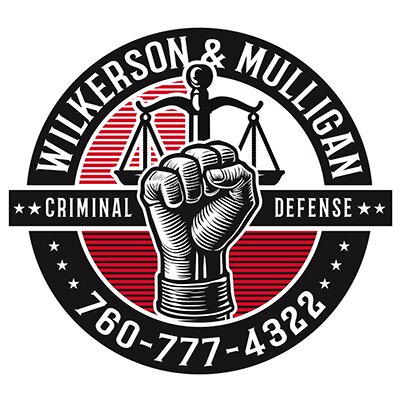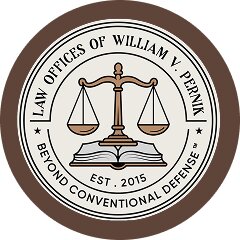Best Juvenile Law Lawyers in California
Share your needs with us, get contacted by law firms.
Free. Takes 2 min.
Or refine your search by selecting a city:
List of the best lawyers in California, United States
About Juvenile Law in California, United States
Juvenile Law in California addresses the legal procedures and rights related to individuals under the age of 18 who are involved in the legal system. This includes cases where minors are accused of committing crimes (juvenile delinquency), as well as situations involving child protection and dependency, such as abuse or neglect. The California juvenile justice system operates separately from the adult criminal system, with a strong focus on rehabilitation, education, and support rather than punishment. The objective is to guide youth toward better choices while protecting public safety and the welfare of young individuals.
Why You May Need a Lawyer
People may require legal assistance in Juvenile Law for several reasons. If your child is accused of a crime, competent legal representation can help navigate the juvenile court process, protect the child’s rights, and seek alternatives to detention. Legal help is also necessary if there are child welfare or dependency issues, such as when Child Protective Services becomes involved. Parents or guardians facing allegations of abuse or neglect, or whose children are at risk of being removed from their care, often need an attorney to represent their interests and advocate for family reunification. Additionally, lawyers can assist with sealing juvenile records and handling cases involving truancy or other status offenses.
Local Laws Overview
In California, the Welfare and Institutions Code governs most juvenile proceedings. Juvenile courts have jurisdiction over cases involving minors accused of violating the law (delinquency), and those facing abuse, neglect, or abandonment (dependency). The minimum age for juvenile delinquency proceedings is 12, with exceptions for very serious offenses. California law emphasizes rehabilitation, and options such as diversion programs, counseling, and probation are often considered before any placement in juvenile detention. The process is confidential to protect the minor’s privacy. Additionally, California allows for some minors aged 16 or older to be tried as adults for severe crimes, but only under specific circumstances and after a transfer hearing.
Frequently Asked Questions
What is the difference between juvenile court and adult court?
Juvenile court specializes in handling cases involving minors, with an emphasis on rehabilitation instead of punishment. The process is more informal and confidential, and the consequences often focus on treatment, education, or community service.
At what age can a minor be charged in juvenile court in California?
In most cases, a child must be at least 12 years old to be charged in juvenile delinquency court, except in the case of very serious offenses, such as murder or rape, where no minimum age applies.
What are the possible outcomes of a juvenile delinquency case?
Potential outcomes include dismissal of charges, informal probation, formal probation, counseling, community service, placement in a group home, detention in a juvenile facility, or, in rare cases, transfer to adult court.
Can a juvenile be tried as an adult in California?
Yes, but only for serious crimes and after a formal transfer hearing where the judge considers factors such as the juvenile’s age, criminal history, and the severity of the offense.
Are juvenile court records public?
Juvenile court records are generally confidential in California. Only certain parties, such as the juvenile, parents, and authorized agencies, can access them. Some records may be sealed under specific circumstances.
How can a juvenile record be sealed?
Minors may petition the court to seal their juvenile records after a certain period has passed, provided they have not committed further crimes and have completed the terms of the court’s order.
What is a dependency case?
A dependency case is initiated when a child is believed to be abused, neglected, or abandoned. The court assesses the child’s safety and can order services, foster care, or, in some cases, removal from home.
Do minors have the right to an attorney in juvenile court?
Yes. Minors facing delinquency or dependency proceedings are entitled to legal representation. If the family cannot afford an attorney, the court will appoint one.
What is diversion in the juvenile justice system?
Diversion is a process that allows eligible minors to avoid formal court proceedings by completing educational or counseling programs, after which charges may be dismissed.
Can parents or guardians also need legal representation in juvenile law matters?
Yes. In dependency cases, parents or guardians accused of abuse or neglect often need a lawyer to protect their rights and work toward family reunification.
Additional Resources
California residents can seek information and help from several organizations and agencies specializing in Juvenile Law. Key resources include local county Public Defender’s Offices, the California Courts’ Self-Help Center, the Office of the Ombudsperson for the California Department of Juvenile Justice, and legal aid organizations such as California Youth Connection. The California Department of Social Services and Child Protective Services can provide guidance for parents involved in dependency matters. Nonprofit groups, such as the Youth Law Center and National Center for Youth Law, offer advocacy and informational resources.
Next Steps
If you or your child are involved in a juvenile law matter, the first step is to consult a qualified attorney who specializes in juvenile cases. You can contact your local public defender’s office if you cannot afford private counsel, or reach out to a legal aid organization for advice. Gather all relevant documents, such as court papers, police reports, and school records, before meeting with your attorney. If Child Protective Services or law enforcement contact you regarding your child, do not make statements or sign documents without legal counsel. The juvenile law process can move quickly, so it is essential to act promptly to protect your child’s and family’s rights. Seek support from advocacy organizations or counselors to navigate emotional and practical challenges during this time.
Lawzana helps you find the best lawyers and law firms in California through a curated and pre-screened list of qualified legal professionals. Our platform offers rankings and detailed profiles of attorneys and law firms, allowing you to compare based on practice areas, including Juvenile Law, experience, and client feedback.
Each profile includes a description of the firm's areas of practice, client reviews, team members and partners, year of establishment, spoken languages, office locations, contact information, social media presence, and any published articles or resources. Most firms on our platform speak English and are experienced in both local and international legal matters.
Get a quote from top-rated law firms in California, United States — quickly, securely, and without unnecessary hassle.
Disclaimer:
The information provided on this page is for general informational purposes only and does not constitute legal advice. While we strive to ensure the accuracy and relevance of the content, legal information may change over time, and interpretations of the law can vary. You should always consult with a qualified legal professional for advice specific to your situation.
We disclaim all liability for actions taken or not taken based on the content of this page. If you believe any information is incorrect or outdated, please contact us, and we will review and update it where appropriate.
Browse juvenile law law firms by city in California
Refine your search by selecting a city.
















